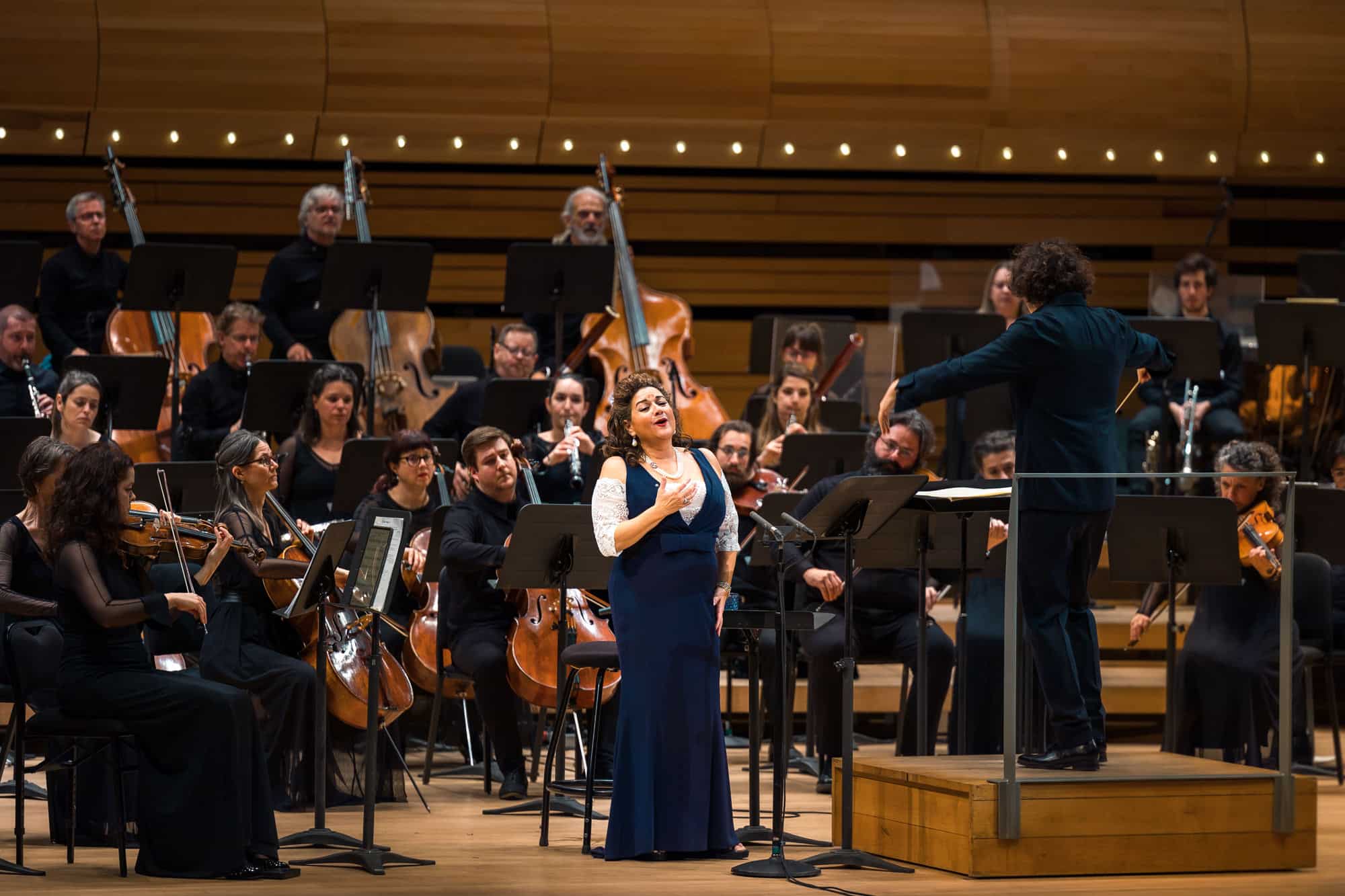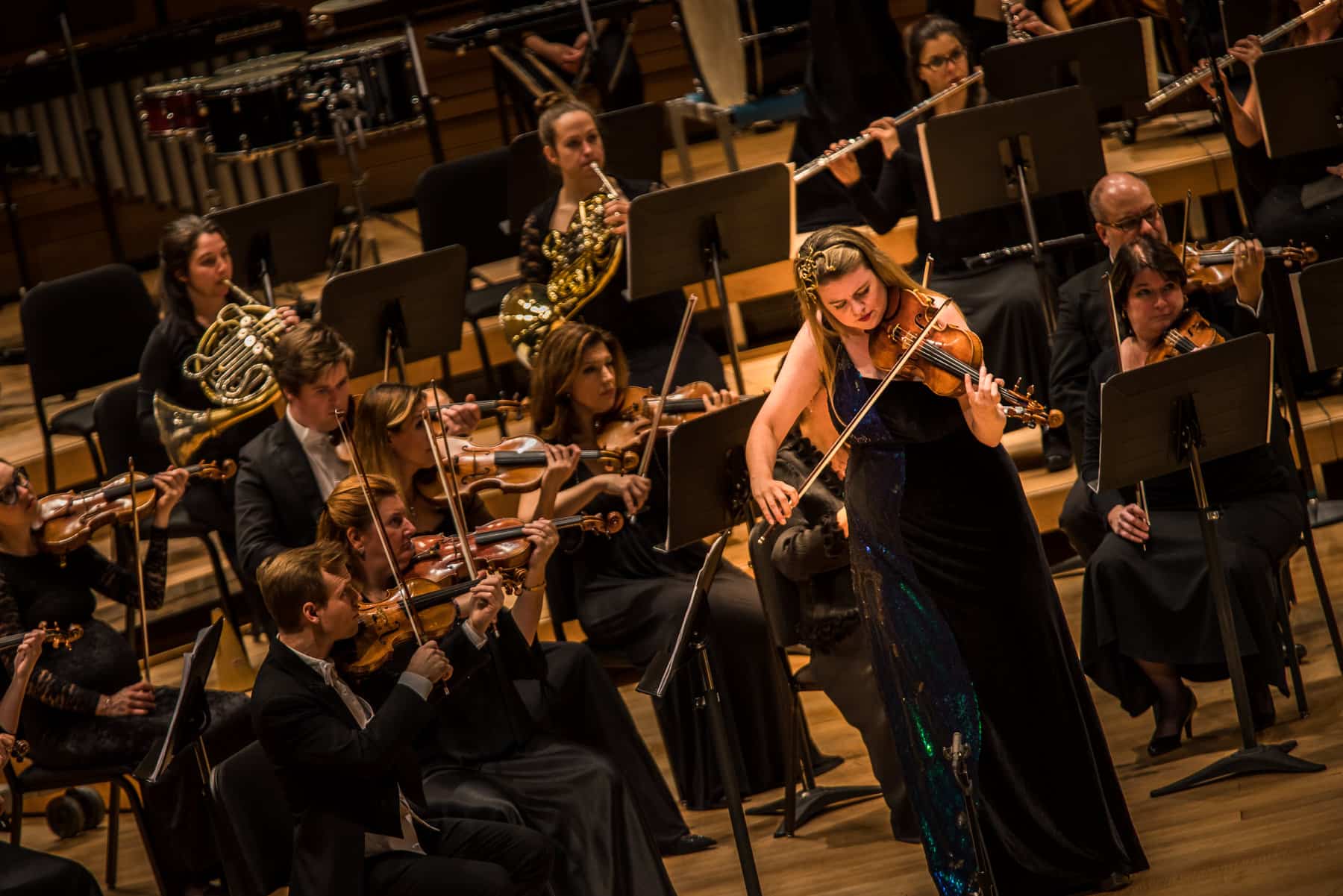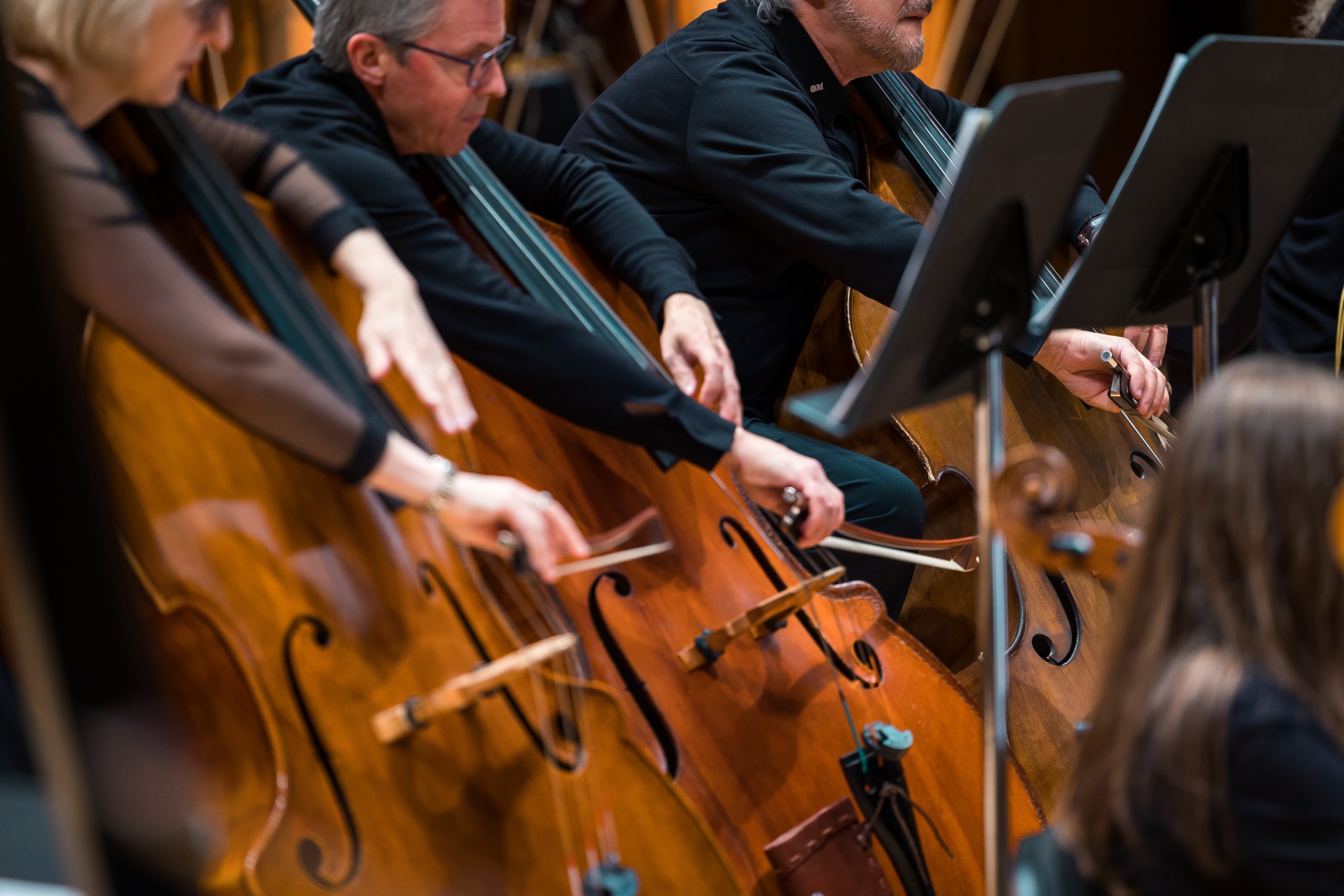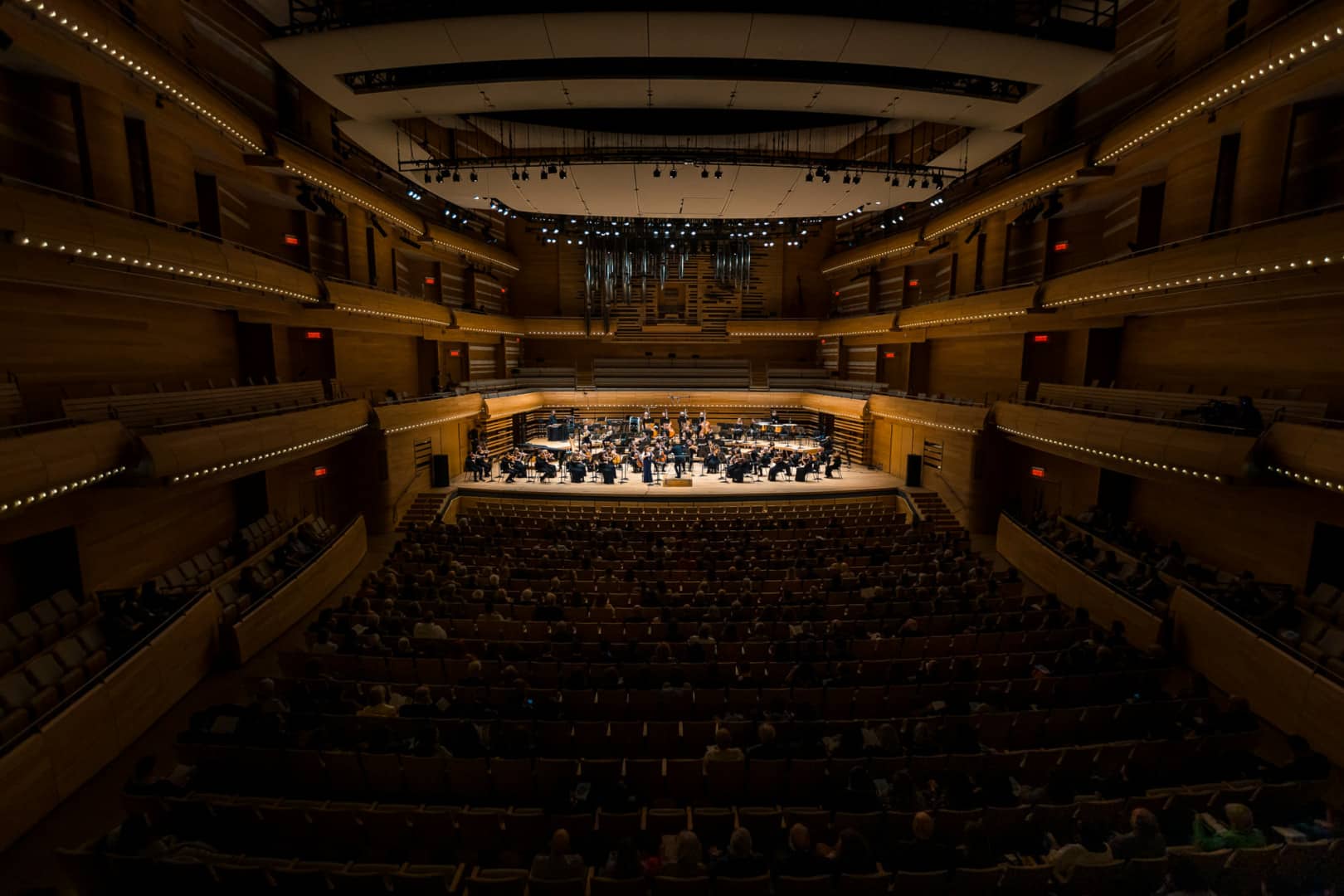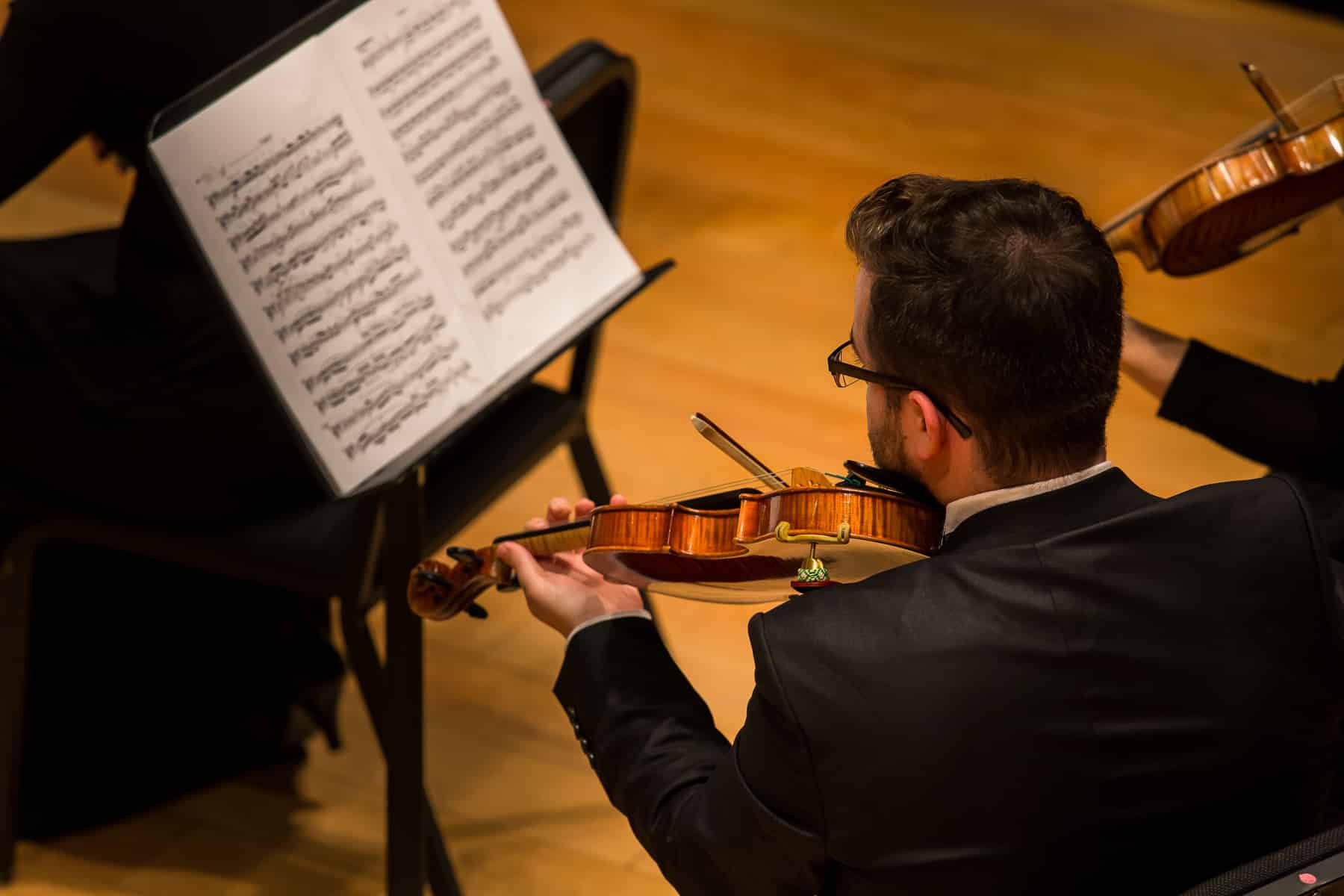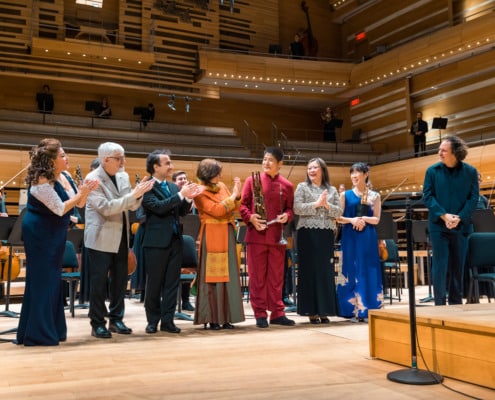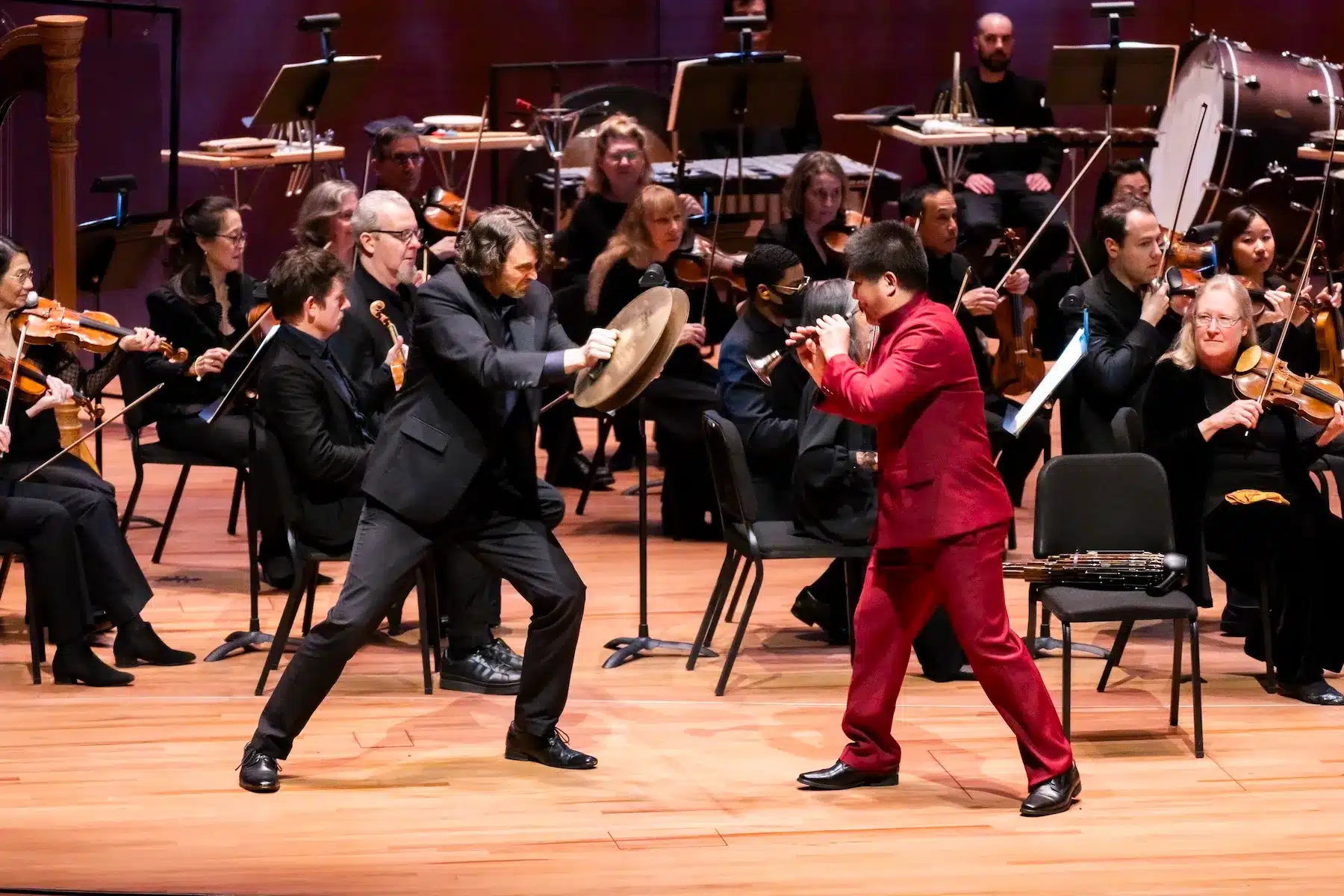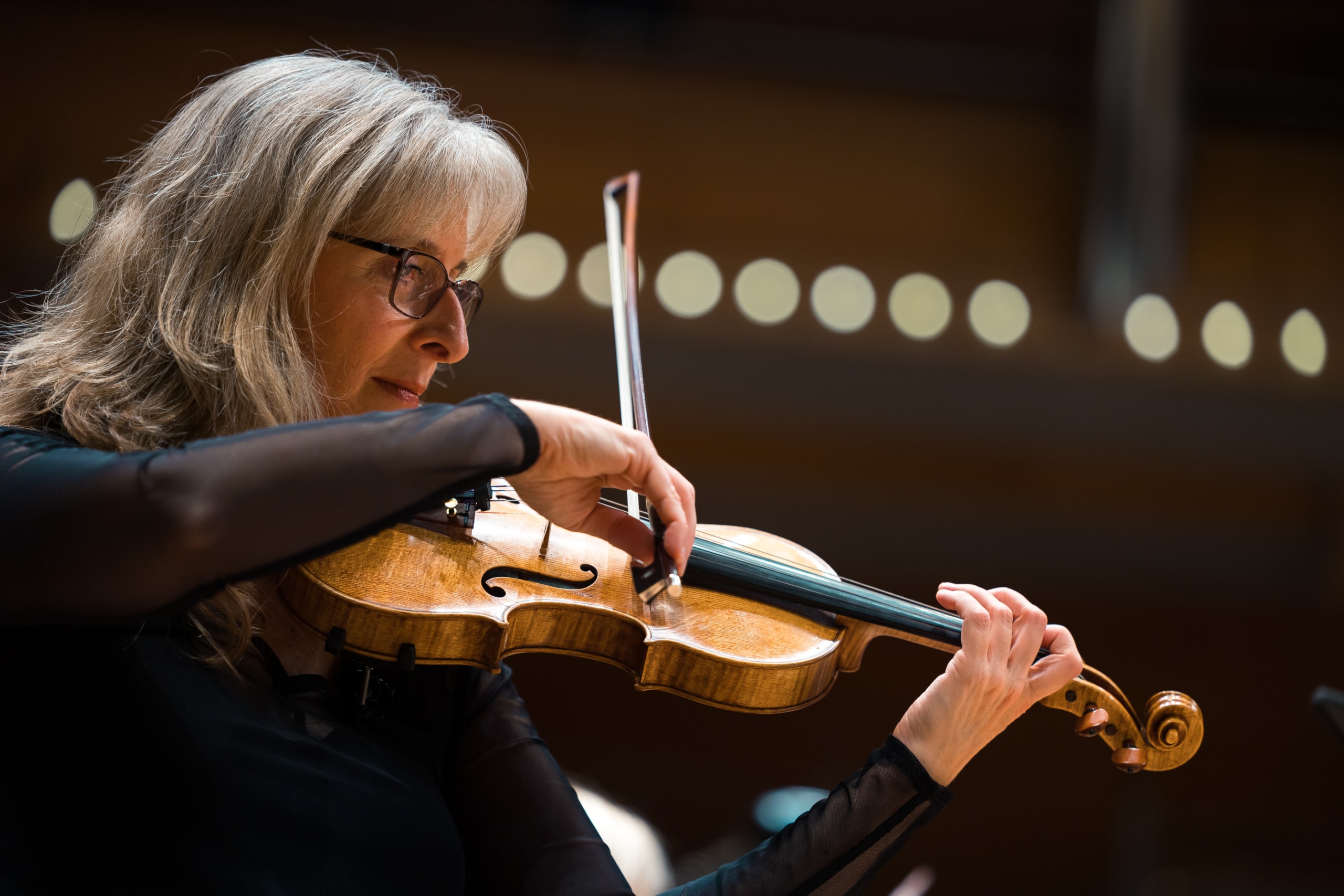The Azrieli Commission for Canadian Music is open to all Canadian composers with the aim of encouraging creative and critical engagement with the complexities of composing Canadian concert music*.
(*Please see below the Foundation’s reflection on what might constitute Canadian concert music to ensure that the proposed work aligns with its examples.)
A commissioning prize of $50,000 CAD is awarded biennially to the composer who proposes a response to this challenge that displays the utmost creativity, artistry, technical mastery and professional expertise.
The musical work resulting from the Commission will be:
- premiered by the Orchestre symphonique de Montréal Chorus at the AMP Gala Concert in mid- to late-October 2024;
- given two subsequent international premieres; and
- professionally recorded for a future commercial release.
The winning composer is expected to attend the rehearsals, performances and the recording of their prize-winning work, and will be publicly honoured at the AMP Gala Concert in Montreal in the fall of 2024.
